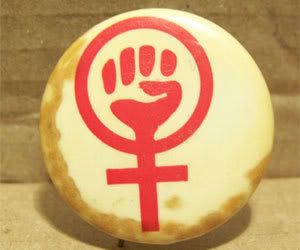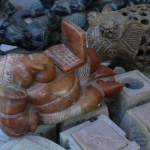 Indian Supreme Court is very pro women, which is excellent. In the last so many centuries, the Indian societal customs have taken away from women more than they have given her so this quiet but a definite movement for empowering the woman is very positive. These decisions which become precedents and defacto law have been accumulating over many years.
Indian Supreme Court is very pro women, which is excellent. In the last so many centuries, the Indian societal customs have taken away from women more than they have given her so this quiet but a definite movement for empowering the woman is very positive. These decisions which become precedents and defacto law have been accumulating over many years.
The HIndu Succession Act of 1956 was the first time that by law in modern times, a woman was given the right to inherit property. Before that for the absolute right to be inherited to a lady, the will should have mentioned it in clear and unambiguous terms. After the HSA, 1956 however, a daughter and wife was treated the same way as the male heirs.
A spate of judgments were administered by Supreme Court thereafter where the injustice that was prevalent before the HSA 1956 was reversed by saying that any will that did not explicitly give absolute rights to a lady but recognized a “relationship” with the owner that could inherit property, then property rights – however restricted – to such a relationship will blossom as absolute right automatically. Which means that if a wife was not explicitly given absolute rights in the will but rights to live and function in that property (or have any vestige of right to property) then automatically she gets absolute rights to that property.
Absolute right to a property means the right of an owner with ability to sell, rent, and/or dispose of the property.
I have gone through a law suit within my family where a will which unambiguously took away absolute rights from a wife was also in danger of being interpreted in the same vein – despite the fact that the will of the owner was made and executed in 1975 (almost two decades AFTER HSA, 1956). Such is the level of activism of Supreme Court in this area!
Now, comes another movement for further strengthening and empowering a woman by Law Commission. It has recommended that self-acquired property of a married Hindu woman without an heir would simultaneously pass on to her parents as well as to her husband’s family.
In case the parents of a woman are no more, a part of her property would go to the heirs of her father. It would involve amendment in Section 15 of the HSA, 1956.
This amendment tries to differentiate clearly between inherited and self acquired property of a woman and creates a different set of inheritance pattern, in case of a woman, between the two.
Hitherto the law was silent on this distinction. The inheritance from the her parents would devolve to her father’s heirs in case of her death without heirs.. and the inheritance from her husband’s side would devolve to the heirs of husband. What about the self-acquired property? Well, it followed the pattern of property inherited from her husband’s side and used to devolve to her husband’s heirs.
Now, that has been changed.
Another change that Law Commission wants to make is that when amendments are made entitling women to inherit property from her parental side as well as her husband’s side, it would be justified if equal rights are given to her parental heirs along with her husband’s heirs, to her property.
Indian Judiciary is very progressive in this sense and should be applauded in the way it is shaping the future laws for women’s right through silent but determined activism.















